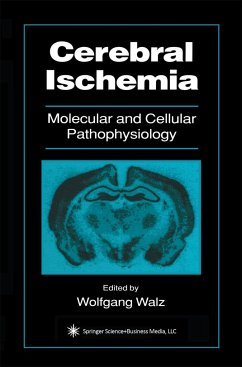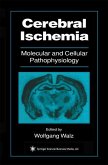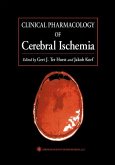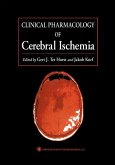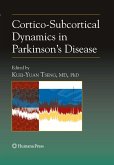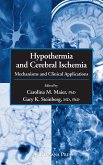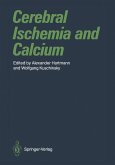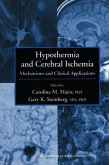The human brain represents about 2% of the body weight, yet it accounts for approximately 20% of aerobic metabolism. This high dependency on energy-consuming processes is mainly caused by the active transport of ions, which is necessary to compensate for the transmembrane ion currents that are part ofthe complex signaling processes in the brain. Ninety-five percent ofthe brain's ATP is derived from mitochondrial oxidative phosphorylation. Since that organ' s storage capacity for oxygen is minimal, any interruption of oxygen delivery to brain cells willlead to changes in membrane excitability and, there fore, to disruption of neuronal signaling within seconds. It seems that mamma lian brain is especially vulnerable to such an interruption, since oxygen deprivation leads to activation of ion channel mechanisms in neurons that impair their communications. Thus, the function of the brain as a coordinator of vital homeostatic reflexes, and complex body reactions to external challenges, depends critically on the rate of oxygen delivery and oxygen consumption. Oxygen delivery depends on two variables described in the Fick relation ship: volume flow rate ofblood and the arterial oxygen content. A reduction in either of these two variables will have serious effects on vital brain func tions. Reduction of arterial blood flow to the brain can be caused by cardiac arrest, shock, carotid occlusion, Of hypotension (global ischemia). Oxygen content is progressively decreased in asphyxia (including drowning).
"...The book will be useful for new entrants to the field of cerebral ischaemia and will also be of value to workers in the field who wish to get up to speed in aspects in which they are not primarily active. The reviews are, on the whole, well written and extensively referenced, and personally, I found the chapters on gene expression and cytokines most interesting." -Brain
"...a clear source of knowledge for interested practitioners....The first part gives a clear overview of the mechanisms involved in cerebral ischemic damage....Each chapter of this book can be consulted on itself. Nevertheless, it gives a very homogeneous and coherent impression."-Acta Neurologica Belgica
"In this book, the editor, Wolfgang Walz, and a panel of experts in the field of cerebral ischemia give a broad insight into the current knowledge of molecular and cellular events occurring in the brain parenchyma during cerebral ischemia. The book is well structured....this book gives auseful summary of molecular and cellular aspects of cerebral ischemia, its length (284 pp.) makes it easily readable, and it can be recommended as an introduction to the field of clinicians and researchers interested in stroke."-European Neurology
"The author reviews also multiple therapeutic strategies corresponding to those various events induced by brain ischaemia....Very fundamental data related to the last developments of molecular biology, such as the reprogramming of gene expression after ischaemia and the neuronal death due to necrosis or apoptosis, are emphasized...Experts in the fields wrote the various chapters that include a very extensive bibliography. The book can be recommended to scientists concerned with basic mechanisms of brain ischaemia as well as to clinicians whose goal is the prevention of irreversible brain damage and he development of new therapies."-Acta Cardiologica
"...a clear source of knowledge for interested practitioners....The first part gives a clear overview of the mechanisms involved in cerebral ischemic damage....Each chapter of this book can be consulted on itself. Nevertheless, it gives a very homogeneous and coherent impression."-Acta Neurologica Belgica
"In this book, the editor, Wolfgang Walz, and a panel of experts in the field of cerebral ischemia give a broad insight into the current knowledge of molecular and cellular events occurring in the brain parenchyma during cerebral ischemia. The book is well structured....this book gives auseful summary of molecular and cellular aspects of cerebral ischemia, its length (284 pp.) makes it easily readable, and it can be recommended as an introduction to the field of clinicians and researchers interested in stroke."-European Neurology
"The author reviews also multiple therapeutic strategies corresponding to those various events induced by brain ischaemia....Very fundamental data related to the last developments of molecular biology, such as the reprogramming of gene expression after ischaemia and the neuronal death due to necrosis or apoptosis, are emphasized...Experts in the fields wrote the various chapters that include a very extensive bibliography. The book can be recommended to scientists concerned with basic mechanisms of brain ischaemia as well as to clinicians whose goal is the prevention of irreversible brain damage and he development of new therapies."-Acta Cardiologica

